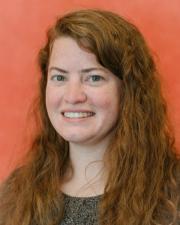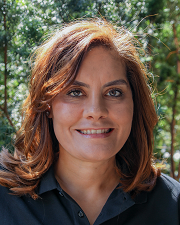
Support for a successful journey
Successful Journey
Advising
Teaching, mentoring and advising quality
BSW students should make advising appointments through Jayhawk GPS. In the notes of that appointment, you can indicate how you would like to meet. Your advisor can accommodate your advising in a number of different ways:
- In-person advising, to be completed by your scheduled appointment.
- Email advising, to be completed by your scheduled appointment.
- Advising by phone during your scheduled appointment (we will need your preferred phone number).
- Advising by Zoom during your scheduled appointment (we will need your preferred phone number).
The BSW degree program prides itself on the thoroughness of its advising system. Early advising is recommended for students interested in social work.
Undergraduate academic advising is a developmental decision-making process during which students identify and realize their educational potential through communication with an academic success coach. Advising is an ongoing, multifaceted process. It is a responsibility shared by the student, success coach and KU. Advising concerns students' intellectual goals including career planning, enrollment, and course and major selection. It establishes and maintains a relationship between faculty members and students.
Once a student is admitted to the School of Social Welfare, a faculty advisor is assigned to assist the student with career and professional matters. In addition, an academic success coach will be able to assist students with enrollment and other academic program requirements for the BSW degree program. Students consult with their academic success coach before enrollment each semester and have their advising hold removed. Students can view their success coach on the myKU portal.
For more information on BSW degree advising, review the BSW student handbook.
MSW Enrollment Information
Find part-time and full-time MSW Advanced Standing and Traditional completion plans on the webpages for each program location and format:
- Advanced Standing MSW – Lawrence Campus
- Advanced Standing MSW – Edwards Campus
- Advanced Standing MSW – Pittsburg State University Campus
- Advanced Standing MSW – Salina
- Advanced Standing MSW – Online
- Traditional MSW – Lawrence Campus
- Traditional MSW – Edwards Campus
- Traditional MSW – Pittsburg State University Campus
- Traditional MSW – Online
Your specific enrollment time can be found in Enroll & Pay in the Manage Classes section. After you select “Manage Classes,” you will be able to select “Enrollment Dates” to find your specific time.
The time assigned to you is the first opportunity you get to enroll in your courses. You may enroll any time after this time/date has passed. If you try to enroll before that date and time, you will get an error message.
You must also check Enroll & Pay to see if you have anyholds which may prevent your enrollment. The most common type of hold this time of year is an NPY Hold which means “Past Due Balance.” Please try to resolve any holds before your enrollment time. **Every MSW student has a “No Drops Hold” on their account. This prevents students from dropping classes without speaking to an advisor first. It will not impact your ability to enroll.
Schedule of Classes
Visit classes to find course offerings (make sure you select GRADUATE level and view the correct campus).
Licensure info can be found on the student resources page.
Each student has a faculty member assigned as an advisor for consultation on career matters, fields of practice, and concentration. In addition, an academic advisor will be able to assist students with enrollment and other academic program requirements for the M.S.W. degree. Students can view their advisors on the myKU portal. For more information on MSW program advising, please review the MSW Handbook.
Requests for a Leave of Absence or Change in MSW Program Plan of Study
Students who wish to request an intermit (leave of absence) or change their plan of study must complete the Request for a Leave of Absence or change in MSW Program Plan of Study form.
Review the School of Social Welfare’s policies and procedures for an intermit or change to a plan of study in the MSW Handbook.
The primary purpose of the advising system is to provide advice, support, mentoring, and evaluation for students by faculty. The Doctoral Program Office also keeps a database for tracking student progress to help students and faculty to evaluate and guide students’ educational planning and progress. Current students can find their advisors on the myKU portal.
There are two types of advisors: Enrollment Advisor and Academic Advisor.
- The enrollment advisor helps the student to schedule classes, assures compliance with school and university regulations for scheduling, and gives enrollment permission. The enrollment advisor is the PhD program director for all students until they have formed an Integrative Paper Committee.
- The academic advisor provides advice, support, evaluative, and monitoring for the student. The academic advisor is responsible to notify the PhD program director whenever serious academic difficulty is identified for an advisee, so that appropriate supports and responses can be devised. The PhD program director serves as academic advisor to incoming students. The PhD program director also helps students to identify an ongoing academic advisor during their first year, based on matching common interests between the student and relevant faculty. A student may change academic advisor at any time by following the procedures described in the PhD Handbook.
- Once a student has formed an Integrative Paper Committee, the chair of that committee serves in the capacities of both enrollment and academic advisor.
- Once a student has formed a Doctoral Dissertation Committee, the chair of that committee serves in the capacities of both enrollment and academic advisor.
The Practicum Education Office works closely with students and agencies to secure an enriching practicum experience. Every effort is made to locate a placement within a one-hour drive from the student's home. Learn more about Practicum Education.
Assessment of Student Learning
Council on Social Work Education Accreditation requires continuous evaluation
Additional Resources for a Successful Journey
Find resources for current students including program handbooks, emergency funding information, and contacts for the Dean's Student Advisory Board.
Additional Funding
The School of Social Welfare goes above and beyond the typical financial aid and scholarship support to help provide support for students with additional need.
Scholarships & Funding








